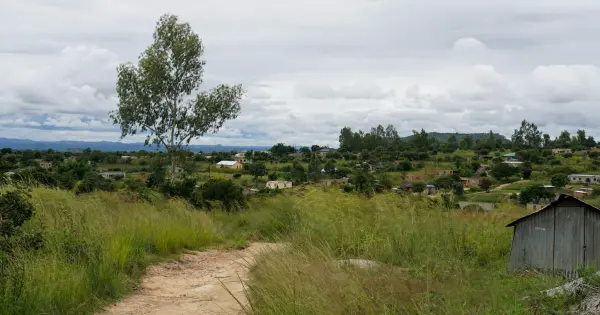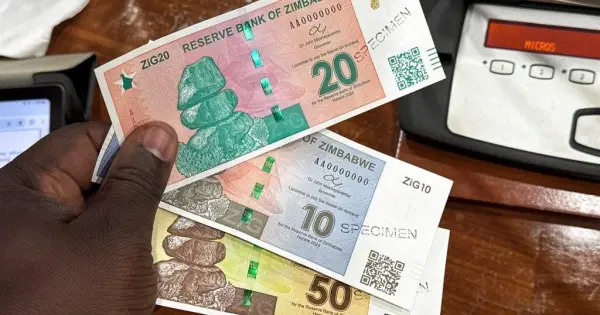Zimbabwe's farm property market doesn't reward the casual investor or the unprepared farmer. With land prices spanning from $25,000 village plots to $10 million large-scale farms, the stakes are as varied as our country's six agricultural regions.
The average farm in Zimbabwe currently fetches around $415,000 - a figure that speaks volumes about both the challenges and opportunities in this sector. This comprehensive guide cuts through the complexity to deliver straight talk on farm investments in today's Zimbabwe.
As Zimbabwe's leading property marketplace with over 7,000 listings and connections to 2,000+ agents nationwide, Propertybook has witnessed firsthand how agricultural land continues to be the backbone of our economy. Our database reveals 331 farm properties currently on the market, with values totaling an impressive $137 million.
In this analysis, we'll walk you through everything you need to know about farm properties - from regional price variations to investment strategies that match your budget. Let's dig in.
Farm Property Market Overview: The Lay of the Land
Zimbabwe's agricultural landscape offers diverse investment opportunities across different regions, price points, and property types. Before you plant your financial seeds, here's what the market looks like in 2025:
The national farm property scene boasts over 166 available properties with a total market value of $137,050,000. At an average price of $415,000, these properties represent a premium of approximately 45% above the national average property value. This price difference highlights the significant investment potential agricultural land holds in our economy.
When breaking down price per square meter, farm properties average around $20, but this figure varies dramatically by region:
- Mashonaland East commands premium prices at $45 per square meter
- Harare surroundings fetch moderate rates at $13 per square meter
- Mashonaland West offers the best value at just $3 per square meter
This regional variation creates entry points for investors across different budget ranges and highlights the importance of location in farm property valuation.
Regional Farm Property Analysis: Where to Plant Your Investment
The geographic distribution of farm properties across Zimbabwe reveals interesting patterns that smart investors should note. Our data shows three primary regions dominating the market:
Mashonaland East leads with 99 farm properties and the highest average prices of $490,000. The premium pricing reflects the region's excellent soil quality, reliable rainfall patterns, and proximity to major markets. Areas like Marondera, Ruwa, and Goromonzi continue to attract both commercial farmers and hobby farm enthusiasts.
Mashonaland West follows with 34 properties and offers more affordable options at an average of $430,000. The region's traditional strength in tobacco production and expanding horticultural operations makes it attractive for export-oriented farming ventures.
Harare surroundings present 33 farm properties with strong average values of $480,000. The premium here comes from the dual-purpose potential - agricultural operations with the added value of proximity to urban markets and potential future development opportunities.
When examining these regions, consider that each hectare tells a different story depending on water resources, soil composition, and existing infrastructure. A farm in Arcturus with multiple boreholes presents a very different investment profile than similarly sized land in Beatrice with primarily rainfed potential.
Farm Property Specifications: What Your Money Buys
What exactly constitutes a "farm property" in Zimbabwe? The answer varies widely, but our database reveals some consistent patterns in what buyers can expect:
Property Size Range
Farm properties in Zimbabwe typically range from 1 to 650 hectares, with most falling between 5 and 50 hectares. This wide range accommodates everything from small hobby farms to commercial agricultural operations.
Standard Farm Property Features
Most farm listings include:
- Water Infrastructure: Multiple boreholes, dams, or water reservoirs
- Residential Structures: Main farmhouse plus additional staff quarters
- Operational Buildings: Storage sheds, processing facilities, or livestock housing
- Boundary Security: Fencing, access control, sometimes with electric options
- Land Classification: Mix of arable land, grazing areas, and natural vegetation
For example, a typical $415,000 farm property might include a 20-hectare parcel with a three-bedroom farmhouse, two staff cottages, a machinery shed, two boreholes, and a small dam. Higher-priced properties tend to feature additional water resources, larger land areas, and more substantial infrastructure.
Property Condition Considerations
Farm properties in Zimbabwe generally fall into three condition categories:
- Established Operations: Fully functioning farms with all infrastructure in place
- Development Potential: Properties with good bones but requiring infrastructure investment
- Rehabilitation Projects: Previously productive farms needing significant restoration
Each category presents different challenges and opportunities for buyers at various investment levels.
Target Market Analysis: Who's Buying Farm Properties?
Understanding who's active in Zimbabwe's farm property market helps position your investment strategy effectively. Our transaction data reveals several distinct buyer profiles:
Commercial Agricultural Entrepreneurs
These buyers seek properties suited for large-scale crop production or livestock operations. They prioritize water resources, soil quality, and existing infrastructure that can support immediate commercial activities.
Lifestyle Farmers
Often professionals or retirees seeking a rural lifestyle with some agricultural activity. They typically focus on smaller properties (5-15 hectares) within commuting distance of major urban centers like Harare.
Investment Consortiums
Groups pooling resources to acquire larger agricultural operations, sometimes with foreign involvement. These buyers examine long-term appreciation potential and export market access.
Hobby Farmers
Weekend farmers maintaining primary residences elsewhere while developing smaller agricultural projects. This growing segment targets properties under 10 hectares with good accessibility from urban centers.
Institutional Investors
Companies and funds diversifying their portfolios through agricultural land acquisition. They favor properties with clear title situations and strong appreciation potential.
Each market segment approaches farm property with different priorities, creating varied opportunities for sellers to position their offerings effectively.
Price Comparisons: Bang for Your Buck
How do farm properties stack up against other real estate investments in Zimbabwe? Our market analysis reveals some surprising insights:
Investment Comparison
When comparing capital outlay to potential returns:
- Farm Properties: $415,000 average price with 5.6-12.2% annual ROI potential
- Urban Residential: $286,000 average price with 3-5% annual rental yield
- Commercial Properties: $520,000 average price with 7-9% annual rental yield
While commercial properties might offer higher immediate yields, farm properties present unique advantages through multiple revenue streams and potential appreciation.
Value Indicators
Several factors determine farm property valuation:
- Water Resources: Properties with multiple reliable water sources command 30-50% premiums
- Infrastructure Quality: Existing operational buildings add significant value
- Location: Proximity to markets and good roads impacts prices dramatically
- Soil Quality: Properties in prime agricultural regions fetch higher prices per hectare
For example, a 20-hectare property with two reliable boreholes in Goromonzi might sell for $450,000, while a similar-sized property with seasonal water access in less fertile regions might list at $250,000.
Maintenance Requirements: The True Cost of Ownership
Owning agricultural land comes with ongoing responsibilities and costs that prospective buyers must factor into their investment calculations:
Essential Maintenance Expenses
Beyond the purchase price, farm owners typically face:
- Water Infrastructure: Borehole maintenance, dam wall repairs ($500-1,500 annually)
- Boundary Security: Fence repairs, security patrols ($1,000-3,000 annually)
- Road Networks: Internal road maintenance ($500-2,000 annually)
- Building Upkeep: Residential and operational structure maintenance ($2,000-5,000 annually)
- Land Management: Bush clearing, erosion control ($1,000-10,000 depending on property size)
These recurring costs vary dramatically based on property size, existing infrastructure quality, and management approach.
Staffing Considerations
Most farm properties require some level of staffing:
- Caretaker/Security: Essential even for undeveloped properties ($200-400 monthly)
- Farm Manager: Necessary for absentee owners ($500-1,000 monthly)
- General Workers: Required for active operations (varies by scale)
These human resource costs significantly impact the operational economics of farm ownership and must be factored into investment calculations.
Investment Potential: Growing Your Wealth
Agricultural land in Zimbabwe continues to demonstrate strong investment characteristics, particularly when approached with a strategic outlook:
Return Potential
Our analysis shows farm properties typically deliver returns through multiple channels:
- Land Appreciation: 2-5% annually depending on location and improvements
- Operational Returns: 3.6-7.2% from agricultural activities when properly managed
- Combined ROI: 5.6-12.2% total annual return potential
This multi-faceted return profile compares favorably against other investment classes, especially when factoring in the hedge against inflation that tangible assets provide.
Value Enhancement Strategies
Smart investors implement specific strategies to enhance farm property values:
- Water Development: Additional boreholes or dam construction
- Infrastructure Improvement: Strategic building additions or renovations
- Land Clearing and Preparation: Converting bush to arable land
- Title Enhancement: Securing proper documentation and permits
- Access Improvement: Developing better roads and entry points
Each improvement not only enhances operational capacity but directly impacts resale value, creating compounding returns on improvement investments.
Market Trends: Where We're Headed
Several key trends are reshaping Zimbabwe's farm property market in 2024 and beyond:
Emerging Patterns
Our data reveals evolving market dynamics:
- Smallholder Focus: Growing demand for 5-15 hectare properties suitable for intensive farming
- Water Premium: Increasing price differentials based on water resource availability
- Infrastructure Value: Greater buyer emphasis on existing operational structures
- Regional Shifts: Growing interest in previously overlooked farming regions
- Diversification Demand: Preference for properties suitable for multiple agricultural activities
These trends create both challenges and opportunities for market participants depending on their property characteristics and investment strategies.
Future Outlook
Looking ahead, several factors will likely influence Zimbabwe's farm property market:
- Climate Adaptation: Properties with resilient water systems will command increasing premiums
- Export Orientation: Farms suitable for export-focused crops will attract premium buyers
- Energy Independence: Off-grid capabilities will become more valuable
- Technology Integration: Properties pre-configured for agricultural technology deployment will gain favor
- Specialty Market Access: Properties with established specialty crop potential will attract premium interest
Savvy investors are already positioning their acquisitions to capitalize on these emerging value drivers.
The Rental Market: Alternative Entry Points
Not ready to purchase? Zimbabwe's farm rental market offers alternative entry points for aspiring agriculturalists:
Rental Market Overview
With 166 farm properties currently available for rent, this market segment presents interesting opportunities:
- Small Farms (3-20 hectares): $400-$3,500 monthly
- Large Farms (90-166 hectares): $2,500-$8,000 monthly
- Typical Lease Terms: 1-3 years with renewal options
- Rental Yields: 5-8% for property owners
These arrangements allow operational entry without the capital requirements of ownership while providing stable returns for property owners.
Rent-to-Own Opportunities
An emerging trend in farm property transactions involves structured rent-to-own arrangements, allowing operators to build equity while developing operations. These typically feature:
- Extended Terms: 5-10 year arrangements
- Option Pricing: Predetermined purchase price structures
- Equity Accumulation: Portion of rental payments credited toward eventual purchase
These creative structures bridge financing gaps for qualified operators while providing sellers with income stability and eventual exit opportunities.
Investment Strategies Based on Budget
Successful farm property investment begins with matching strategy to available capital. Our transaction analysis suggests three primary investment tiers:
Entry-Level Strategy (Under $100,000)
With limited capital, focus on:
- Smaller Agricultural Plots: 1-5 hectare properties
- Partnership Arrangements: Fractional ownership structures
- High-Value Crop Focus: Intensive production of high-margin crops
- Rental-Based Operation: Leasing rather than purchasing initially
- Joint Venture Approaches: Combining land access with operational expertise
This approach maximizes limited capital by emphasizing operational returns over property accumulation.
Mid-Range Strategy ($100,000-$300,000)
At this investment level, consider:
- Moderate Property Acquisition: 5-10 hectare farms
- Rehabilitation Properties: Undervalued farms needing improvements
- Mixed-Use Operations: Combining residential and agricultural returns
- Value-Add Opportunities: Properties with untapped potential
- Specialized Agricultural Niches: Focusing on high-value specialty operations
This balanced approach combines reasonable property acquisition with operational focus.
Premium Strategy ($300,000+)
With substantial capital available, pursue:
- Established Operational Farms: Turnkey properties with immediate returns
- Water-Rich Properties: Farms with significant water resources
- Multi-Use Agricultural Holdings: Diversified agricultural operations
- Strategic Location Acquisitions: Properties with multiple value drivers
- Appreciation-Focused Holdings: Properties in path of development
This approach emphasizes asset quality and long-term value appreciation alongside operational returns.
Legal and Regulatory Considerations
Zimbabwe's farm property market operates within specific regulatory frameworks that investors must navigate carefully:
Ownership Structures
Current property laws allow several ownership approaches:
- 99-Year Leases: Government-issued leases for productive agricultural use
- Title Deed Holdings: Freehold ownership with full property rights
- Permit Systems: Authorized occupation pending formal title arrangement
- Joint Venture Structures: Combined local and foreign investment arrangements
Each structure carries different implications for financing, transfer, and long-term security.
Transaction Requirements
Farm property acquisitions typically involve:
- Due Diligence Requirements: Verification of boundaries, water rights, and title status
- Government Approvals: Various ministerial clearances depending on property characteristics
- Transfer Procedures: Specialized processes for agricultural land
- Tax Implications: Specific tax considerations for agricultural properties
Navigating these requirements typically requires specialized legal assistance to ensure compliance and security.
Conclusion: Cultivating Your Future
Farm property investment in Zimbabwe represents a unique opportunity to combine lifestyle benefits with genuine wealth-building potential. Whether you're drawn to the tranquility of rural life, the satisfaction of agricultural production, or the solid investment characteristics of land ownership, agricultural properties offer compelling value propositions.
As Zimbabwe's leading property marketplace, Propertybook.co.zw provides unparalleled access to farm property opportunities across all regions and price points. Our platform connects you with qualified agents specializing in agricultural properties and offers the market insights needed to make informed decisions.
Ready to explore farm property opportunities? Visit www.propertybook.co.zw to browse our extensive database of agricultural listings or contact our specialized agents for personalized guidance on your farm property journey.
Data last updated: April 2025; Photo by Annie Spratt on Unsplash




